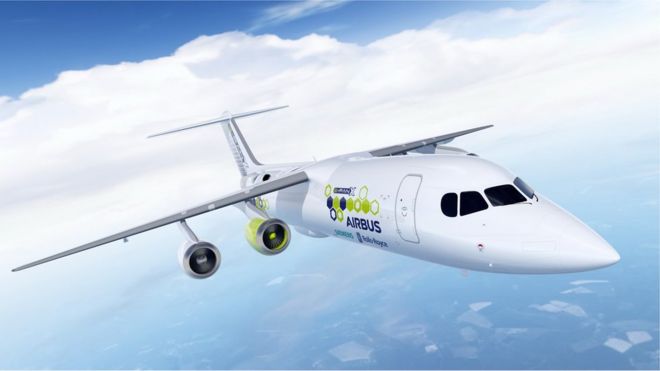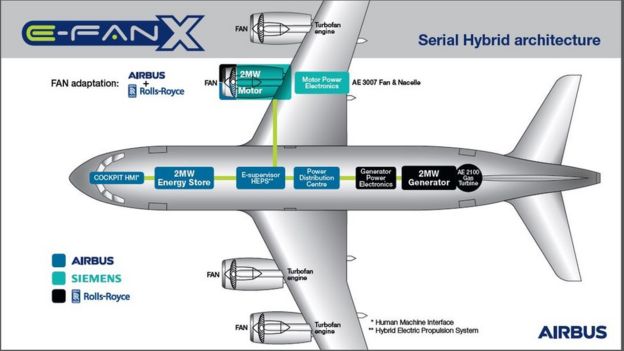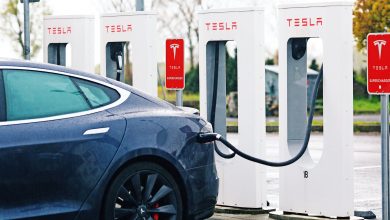Firms team up on hybrid electric plane technology

The E-Fan X programme will first put an electric engine with three jet engines on a BAe 146 aircraft.
The firms want to fly a demonstrator version of the plane by 2020, with a commercial application by 2030.
Firms are racing to develop electric engines for planes after pressure from the EU to cut aviation pollution.
Each of the partners in the programme will be investing tens of millions of pounds, they said on a press call.
The firms are developing hybrid technology because fully electric commercial flights are currently out of reach, a spokeswoman said.
The weight of batteries coupled with the weight of equipment to cool electric engines are two limiting factors at present, she said.
“We see hybrid-electric propulsion as a compelling technology for the future of aviation,” said Paul Eremenko, Airbus’ chief technology officer.

Rolls-Royce will be providing the electricity generator at the back of the E-Fan X plane.
It will run on jet fuel and provide power for the electric engine.
Any excess power from the generator will be stored in banks of batteries in the fore and aft holds with the stored energy to be used during take-off and landing.
Electric race
The E-Fan programme began in 2012 with a collaboration between Airbus and Rolls-Royce.
As part of its Flightpath 2050 plan, the European Commission wants a reduction of carbon dioxide emissions by 60%, it wants nitrogen oxide pollution down by 90%, and noise reduction of 75%.
That has been one of the driving forces behind the Airbus, Rolls-Royce and Siemens programme.
Other firms are also working on commercial passenger electric plane flight.
Easyjet wants electric planes to fly passengers on its short-haul routes, possibly within 10 to 20 years.
And Wright Electric is aiming to offer an electric-powered commercial flight from London to Paris in 10 years.
Source:BBC.com




